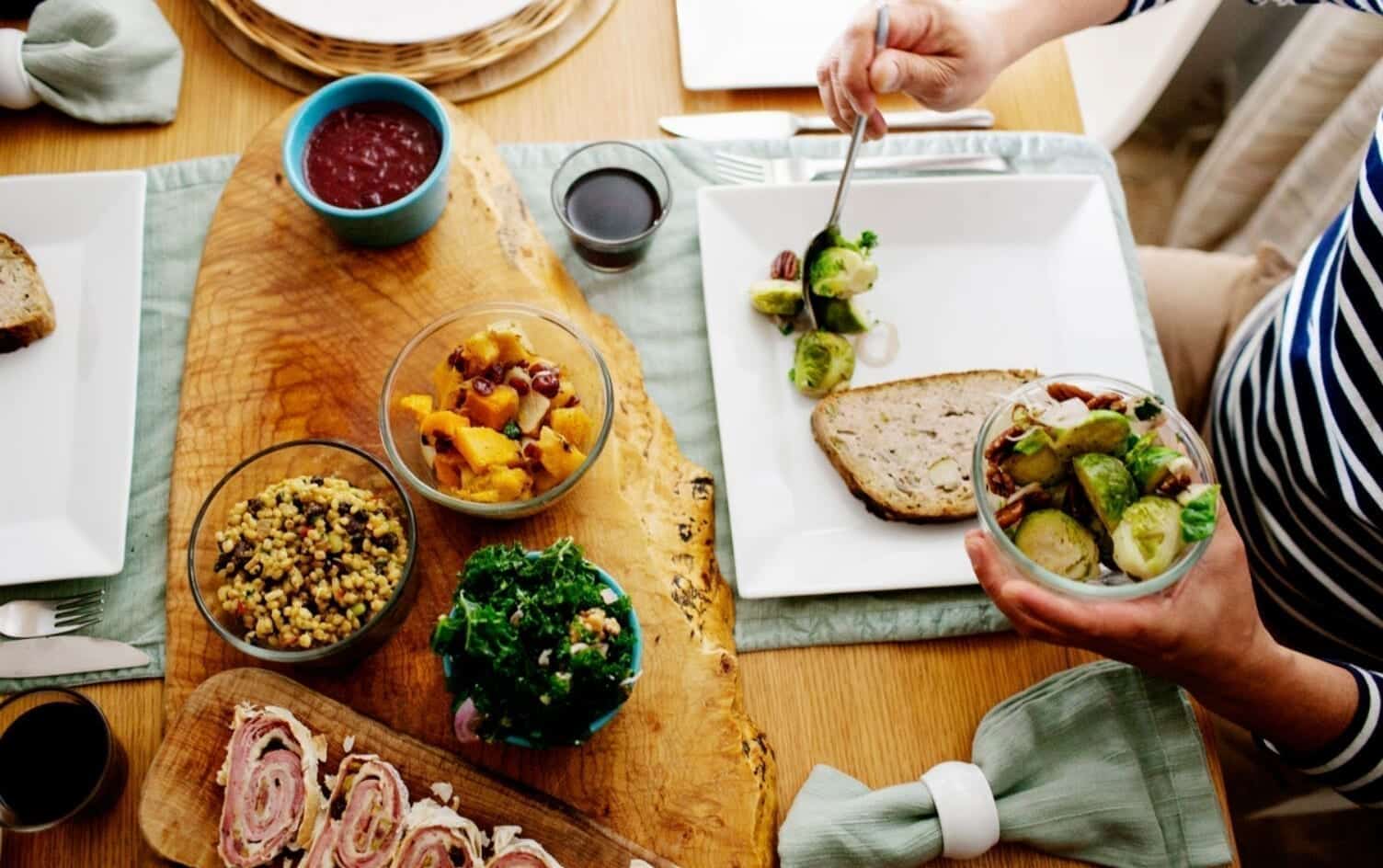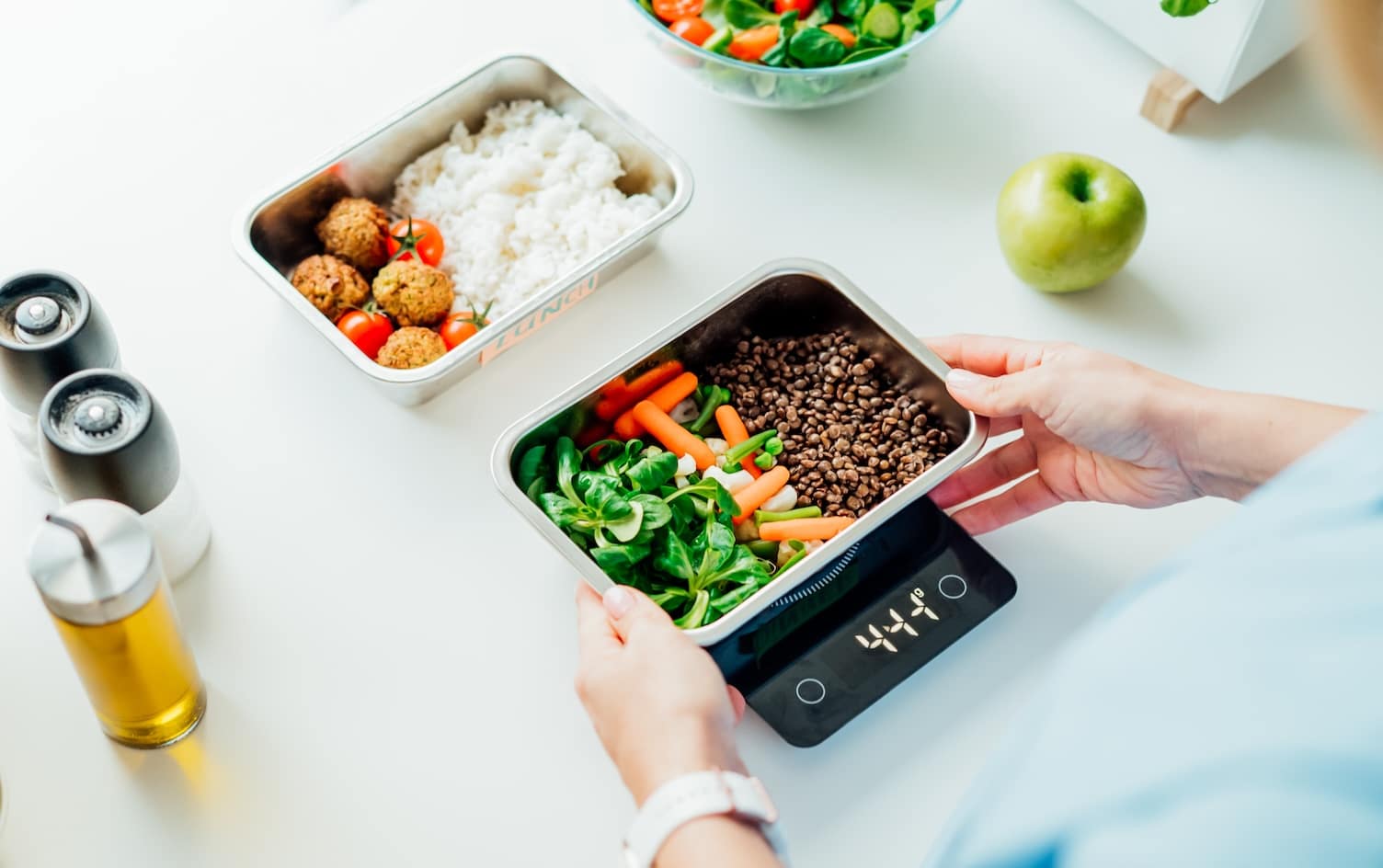Most people have a snack at some point during the day. According to research done in 2015 by Mintel, a market research firm, 94% of Americans snack daily. While that percentage might sound high, if you define a snack as any food eaten outside of breakfast, lunch or dinner, it’s pretty easy to remember the last time you ate one.
Conventional diet wisdom says that to lose or maintain weight, snacking frequently throughout the day is a must. Though there is some science to support this idea, there’s just as much to show it’s unnecessary and could have a negative effect on weight. Even dietitians are somewhat split on the issue.
Like many aspects of nutrition, there’s no clear-cut answer as to whether snacking is good or bad, but there are some factors that can help you decide whether it will be useful in reaching your goals.
THE CASE FOR SNACKING
You’ve probably heard it’s a good idea to have 1–3 snacks per day between meals, and the reasoning makes a lot of sense. “When there’s a large timespan between meals, your blood sugar drops, which can make you feel tired, irritable and even give you a headache,” explains explains Anne Danahy, a Scottsdale, Arizona-based RDN. Some people even take the approach of eating 5–6 small meals per day to help keep themselves balanced.
“Eating smaller, frequent meals can be especially helpful for someone who has reactive hypoglycemia or diabetes because of the blood sugar-stabilizing effect,” Danahy says. Research has shown that, in particular, high-protein, low-carb and high-fiber snacks are best at achieving this goal. There’s also evidence that snacking can help with weight loss, particularly in those with blood sugar issues. One study showed high-protein snacks helped Type 2 diabetes patients achieve fat loss.
Snacking can also be a helpful approach for those who have trouble with portion control, Danahy points out. “Preventing oneself from becoming overly hungry can benefit someone who struggles with mindful eating, because it’s far more difficult to eat mindfully when you’re ‘hangry’ and your blood sugar is crashing,” she explains.
WHY SNACKING ISN’T ALWAYS NECESSARY
While snacking may help some people achieve a healthier eating style, it’s definitely not a requirement. “There is a misconception in the diet world that you have to eat six small meals per day in order to lose weight,” says Gillean Barkyoumb, MS, RD, the founder of Millennial Nutrition. “The science behind this theory is not strongly supported. Studies show inconsistent results.”
In fact, snacking too much could actually have the opposite effect on your blood sugar. “The more you eat, the more you fill your body with insulin and have fluctuations in blood sugar. This roller-coaster effect on blood sugar can cause cravings, fat storage and irritability,” Barkyoumb says. “To avoid this, you want to elongate your blood sugar curve by eating balanced meals with the right amounts of protein, fat and fiber. If your meals are balanced and meet your calorie needs, you will not need to have snacks between every meal, because you are properly nourished and fueled.”
And though many people cite the idea of “keeping their metabolism running throughout the day” as their reason for snacking, research doesn’t support that idea. Snacking is also often touted as a way to control appetite in those looking to lose weight or maintain it, but several studies suggest eating snacks can actually have the reverse effect by increasing the total number of calories a person eats in a day rather than reducing it.
Plus, not snacking allows your body a break between meals. “When you are not grazing all day, your body has time to properly digest food and actually feel hungry,” says Eliza Savage, a CDN at Middleberg Nutrition in NYC. “Yes, it is OK to feel hungry! It’s the body’s signal to eat.” The key, she says, is not letting yourself get too hungry. That’s when a snack might be warranted.
WAYS TO FIGURE OUT WHAT’S RIGHT FOR YOU
As you can probably see at this point, you can easily find research to support both sides of the snacking debate. But what research also tells us is the way snacking affects each person is unique. The desire to snack and the effects of that snacking are dependent on factors like age, emotional reasoning behind snacking and even whether or not you consider snacks to be mini-meals.
READ MORE > WHAT A SNACK WITH 15 GRAMS OF PROTEIN LOOKS LIKE
That’s why dietitians try to help people determine what works best for them as an individual, regardless of what the diet industry says about snacking. “I like to encourage people to experiment a bit,” Danahy says. “Most people have eaten the same way (and even the same foods) for most of their lives, so I ask them to tune into their body and note how they feel with different eating patterns and different foods.”
Savage agrees, noting that “snacking can be both helpful and hurtful. I think it is a good strategy when used appropriately and when both quality and quantity of food is considered. I recommend strategic snacking, especially a 4 p.m. snack to ward off early evening hunger. “ Generally she suggests sticking to a plan of three balanced meals plus one snack of protein and produce (vegetables and hummus, a hard-boiled egg and an apple, a banana and nut butter) for her clients. “Anecdotally, I find that this strategy with consistent meals and snacks is better for people in terms of weight management,” she says.
But, at the end of the day, whether or not you snack is a personal choice. “Goals, work schedules, food preferences and more play roles in finding the right program for someone,” Barkyoumb says. That’s why snacking — or not snacking — is not a requirement for healthy eating or even weight loss. You may find it’s easier to keep your total caloric intake in check with zero snacking or that you really need those snacks to prevent overeating.
“Although it would make my job a lot easier,” Barkyoumb says, “nutrition is not one-size-fits-all!”




